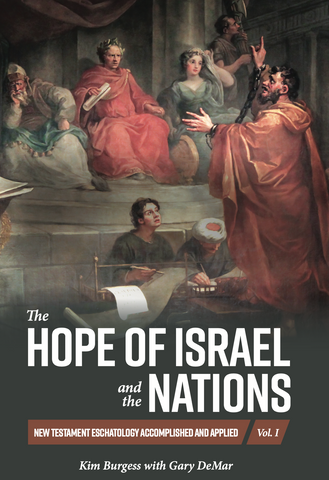Gary begins a two-part podcast about preterism and God’s law.
It is important to note that the noun “preterism” has been squeezed too far back as if it is about nothing more than what is past, about completed action in the past with no future application. The New Testament does address the issue of preterism and acknowledges that certain prophetic announcements—such as Christ’s Olivet Discourse—have been fulfilled in the past. But there is more to consider. There is an important nuance that needs to be spelled out.
Let us get at it this way: Per the Greek, which verb tense best expresses what preterism is as the New Testament understands it? Is it merely the way the noun “preterism” is defined in a standard dictionary as simply referring to the past tense or is it the way the New Testament defines it? Only referring to the past tense and nothing more than that is not the best way to define what Biblical preterism is. The most accurate verb tense in the Greek to render what Biblical preterism really is the perfect tense.
What is the difference between the standard past tense and this perfect tense? Like the standard past tense, the perfect tense also speaks of completed action in the past, BUT the perfect tense has much more nuance to it: The perfect tense in Greek speaks of completed action in the past whose consequences continue into the future by way of application. This is what true Biblical preterism is. It is very important to grasp this distinction. True preterism does not pit the past against the future. Rather, Biblical preterism organically unites the past and the future.

The Hope of Israel and the Nations
The reader and student of the Bible must first understand the content of the New Testament writings in terms of how those in the first century would have understood it. The New Testament is written against the background of the Old Testament. The shadows of the Old were fulfilled in the reality of the New. All the rituals and ceremonies were fulfilled in Jesus. The same is true of the temple, land, blood sacrifices, the nature of redemption, the resurrection of the dead, the breaking down of the dividing wall dividing Jews and Gentiles, and so much more. The New Testament's emphasis is on the finished work of Jesus and its application, not only to that Apostolic generation but to the world today.
Buy NowGary begins a two-part podcast about preterism and God’s law. He is receiving a lot of comments of his Facebook page from some preterists who are claiming that since the OT is fulfilled, then God’s law no longer has the same applications. This topic is in reality a worldview issue and encompasses much more than eschatology.

